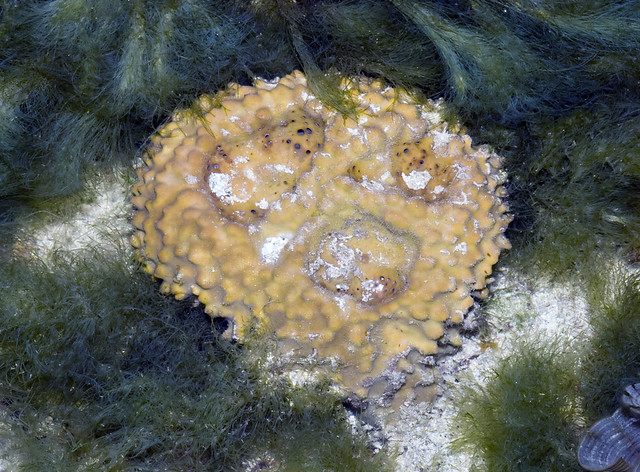 The first official register of what lives in the oceans has revealed that the marine environment may be home to as many as a million species of animals and plants, but only about a quarter of them have actually been formally described. Previous estimates of the number of species living in the oceans have ranged wildly from a few hundred thousand of several million, but the latest estimate is based on the first proper attempt to draw up an accurate inventory of marine life.
The first official register of what lives in the oceans has revealed that the marine environment may be home to as many as a million species of animals and plants, but only about a quarter of them have actually been formally described. Previous estimates of the number of species living in the oceans have ranged wildly from a few hundred thousand of several million, but the latest estimate is based on the first proper attempt to draw up an accurate inventory of marine life.Although more ocean species have been discovered in the past decade than in any previous 10-year period – and about 65,000 newly “discovered” species are still waiting to be given formal scientific names – scientists believe that at least a third of all the marine life forms may be completely unknown to science.
The World Register of Marine Species, an on-line international database, has been put together by 270 marine biologists from 146 institutions in 32 countries in an attempt to answer the age-old question: what lives in the sea?
It found that about 226,000 species have been formally described by scientists – about 20,000 in the last decade alone – but that the total number could be three or four times higher, although unlikely to be more than a million as some previous estimates have suggested.
“More species than ever before are being described annually by an increasing number of [scientists]. If the current trend continues, most species will be discovered this century,” the scientists say in a study published in the journal Current Biology.
“The question of how many marine species exist is important because it provides a metric of how much we do and do not know about life in the oceans. We have compiled the first register of the marine species in the world and used this baseline to estimate how many more species…may be discovered,” they say.
One of the biggest obstacles to working out the total number of marine species is the problem of synonyms – many animals and plants have been given more than one name, and in some cases multiple names.
“The occurrence of as yet unrecognised synonyms is one of the most significant problems in estimating the true number of described species,” the study says.
The sperm whale of Moby Dick fame, for instance, has 19 synonyms, nine of which were given to the species by just three experts, the study found. Another problem was that some species have in fact been found when analysed genetically to consist of two species.
The killer whale and the common bottlenose dolphin, for instance, have each been split into two or more species as a result of genetic analysis.
“For the first time, we can provide a very detailed overview of species richness, partitioned among all major marine groups. It is the state of the art of what we know – and perhaps do not know – about life in the ocean,” said Ward Appeltans of the Intergovernmental Oceanographic Commission.
Source: The Independent
Photo courtesy of wildsingapore via Flickr (CC BY 2.0)
